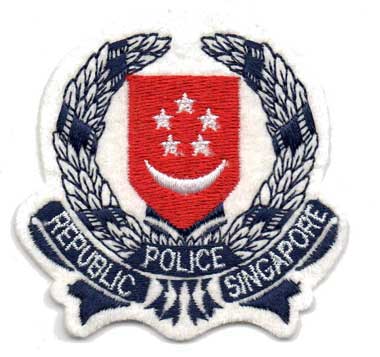Recently, a Singaporean insurance agent was sentenced to a 14 day detention order for an assault on a taxi driver. The assault took place when a 23 year old punched a driver, after drinking in Clarke Quay with friends. He had argued with the driver over the $18 fare in the run up to the incident.
Though his eventual punishment was far smaller than the potential five years in prison that Lai could have served, it is interesting to note that the story was quite big news in Singapore. In this bustling, multicultural melting pot of a state, with a population of over 5 million people crammed onto a 716 km² island, incidents are extremely rare. In a similarly densely packed, business-heavy urban area, like, say, Paris, New York or London, such a story would barely be a story or, at least, certainly not a story that would grab many headlines.
The reason for this is that Singapore is one of the most peaceful, safe and non-violent states in the world. This fact, as much as the low tax rates, superb education, gorgeous weather and pro-business legal system, contributes massively to why so many people are now coming here to work, study and live.
So how do the Singaporean authorities manage to keep the peace so effectively?
Singaporean law and order
Singapore's laws are there to ensure that the population are free to roam the streets in peace and quiet, without needing to worry about the lewd or violent behaviour. In some cases, these laws become very strict indeed, though it is this strictness, and the respect for authority that they inspire, that ensures the state remains a law-abiding one.
For example, littering, chewing gum and smoking can all get you in big trouble in Singapore. Expect a fine of up to $1,000 the first time you are caught dropping your rubbish on the street and $2,000 the second time, plus a spot of Corrective Work Order. Corrective Work Order, or CWO, forces you to donate a few hours of your spare time cleaning up a public place wearing an unmissably bright orange jacket watched and recorded by the local media.
As most people know, chewing gum is strictly contraband in Singapore, as a preventative measure against the littering that the authorities so despise. Possessing, selling or gifting chewing gum will all land you in trouble. Though this might sound draconian, the ban was brought in as chewing gum stuck on the Mass Rapid Transit train doors was actually preventing trains from being able to run, causing a serious safety hazard.
One of the major no-nos of Singapore is drugs. Possessing any of the following quantities of following controlled substances will land you the death penalty: 15 grammes heroin, 30 grammes morphine, 30 grammes cocaine, 500 grammes cannabis and 1.2 kg of opium. Again, if this sounds strict, it is worth remembering Singapore's geographical position. Just an hour away from the notorious Golden Triangle, Asia's chief opium producing area located on the borders of Thailand, Myanmar and Vietnam, the authorities must do all they can to ensure that the drug trade, and the violence and corruption that come with it, do not invade their shores.
All of these laws contribute greatly to ensuring Singapore remains the healthy, thriving, happy society it is today and help keep incidents like the one we mentioned earlier thankfully rare occurrences.

